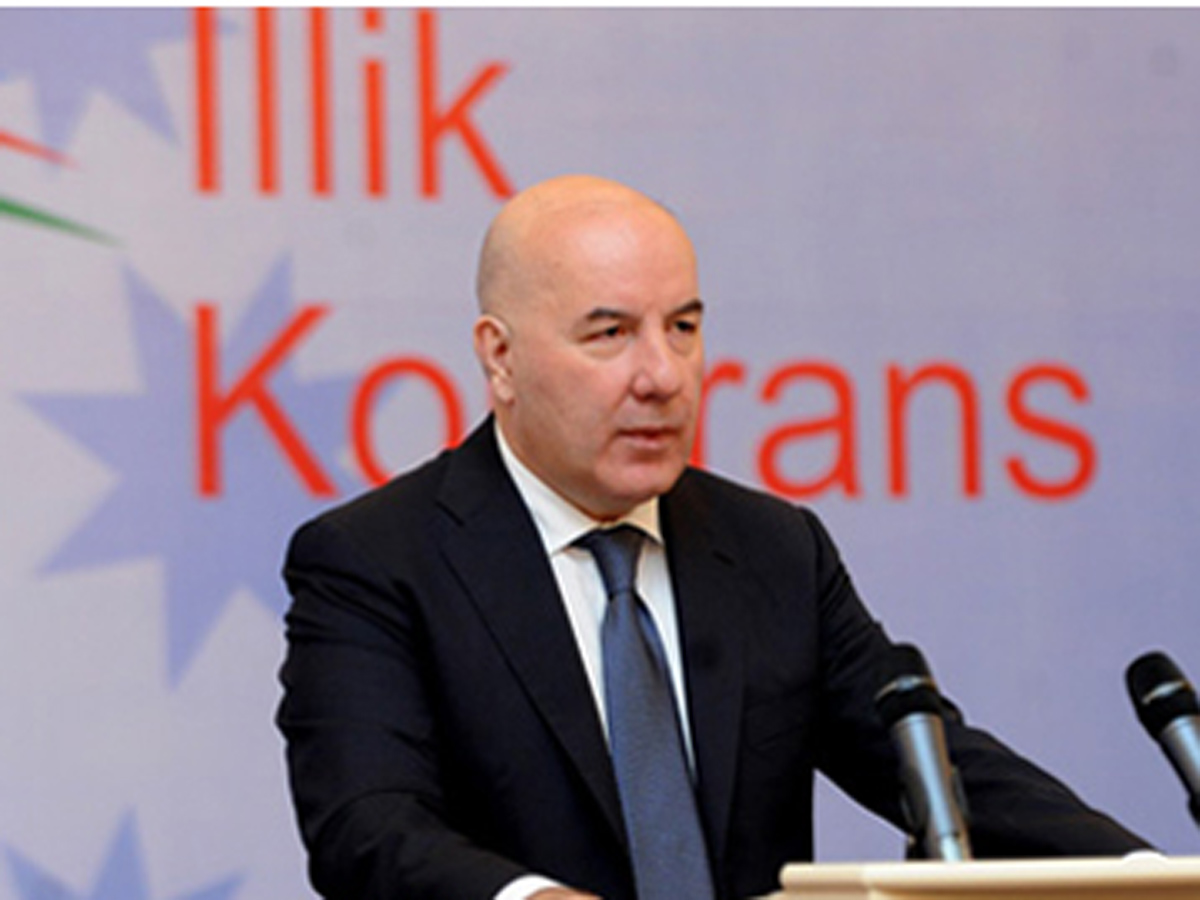Baku, Azerbaijan, Oct. 13
By Ilaha Mammadli - Trend:
In the current economic situation, Azerbaijan needs to balance its economy in line with new conditions to ensure long-term macroeconomic equilibrium and stability, said Elman Rustamov, chairman of the board of Azerbaijan's Central Bank (CBA).
He made the remarks Oct. 13 at a plenary meeting of the country's parliament during a discussion of the draft state budget for 2016 and subsequent three years.
Rustamov added that Azerbaijan also needs to create basic conditions for transition to a new economy and implementation of a new economic model.
"This necessity emerged due to that in 2014, the global economic crisis moved to a qualitatively new stage," he said. "The crisis, which started in the financial sector, transformed into a cyclical one and has a structural nature."
The global crisis has expanded, covering the developed and in recent times, developing countries, including China as well, said Rustamov.
Currently, the global trade and economic activity remains at a low level, price reduction is observed in commodity markets, the trade, currency and exchange rate wars have strengthened, he added.
"Azerbaijan's economy has quite deeply integrated into the global economy and today, foreign trade with commodities and services accounts for 80 percent of the country's GDP," said Rustamov. "Therefore, the impact of the global crisis on Azerbaijan's economy is significant and has a multifaceted nature."
The serious decline in oil prices has the main impact: from the historic maximum of $140 in 2008, the oil prices dropped by three times and even halved in recent year, said Rustamov.
Rustamov said that the current account surplus of the balance of payments declined up to $ 10 billion in Azerbaijan in 2014 (compared to the maximum level of 2011 in the amount of $17 billion) as a result of a great decline in oil prices.
He also said that as of 2015 this figure is expected to hit $2 billion, indicating an eightfold decrease.
"This is connected with a decrease in oil prices," Rustamov said.
Rustamov said that Azerbaijan has maintained its investment-grade rating for seven years of the global crisis despite the characteristic reduction or the change in the ratings in neighboring countries.
He said that 2004-2014 went down in the history as the "golden period" of the formation of Azerbaijan's economy.
Namely as a result of measures taken, Azerbaijan was less affected even during the critical phase of the crisis covering the period 2008-2010. During this period, given a 3.3 percent average annual growth of the global economy, Azerbaijan's economy has grown by an average of 5.1 percent, and the growth of the non-oil sector amounted to 9 percent.
"In the new economic situation, Azerbaijan faces new conditions and challenges, which can be conventionally divided into two parts, namely, balancing of economy and formation of basic conditions for transition to the new economy and the implementation of a new economic model," said Rustamov.
Azerbaijan to switch to new economy model
In the current economic situation, Azerbaijan needs to balance its economy in line with new conditions to ensure long-term macroeconomic equilibrium and stability.






